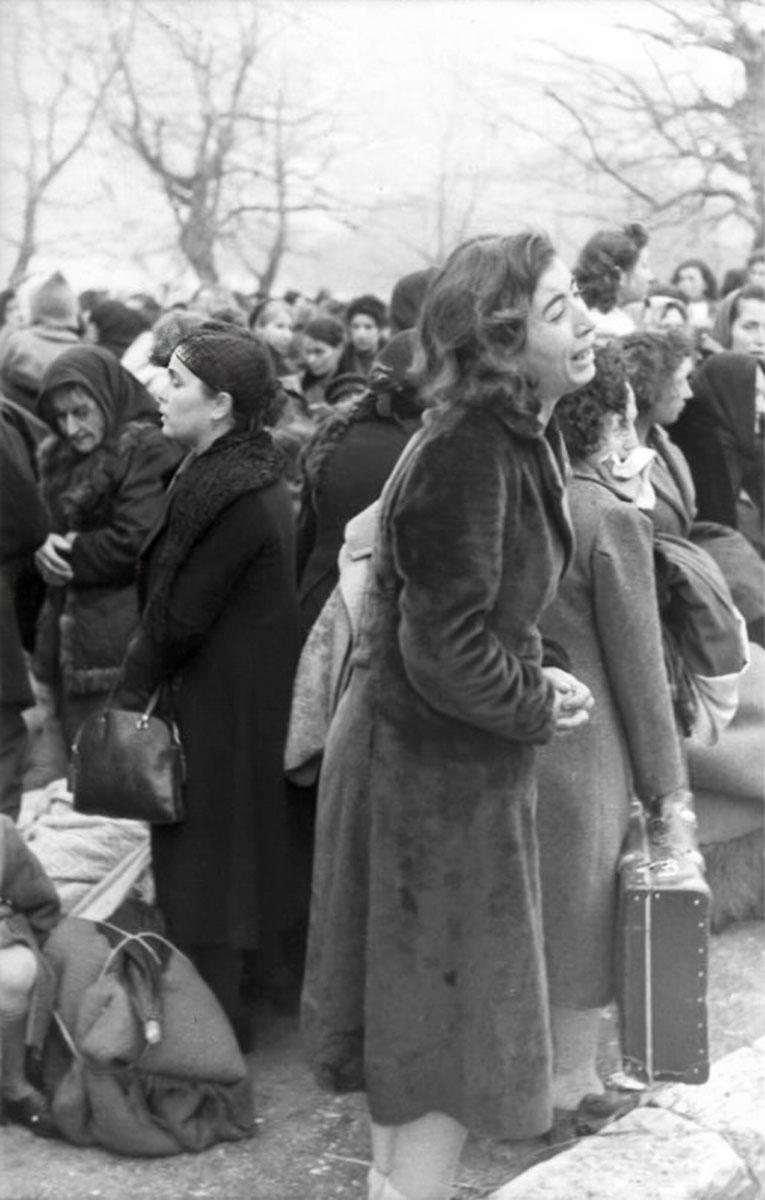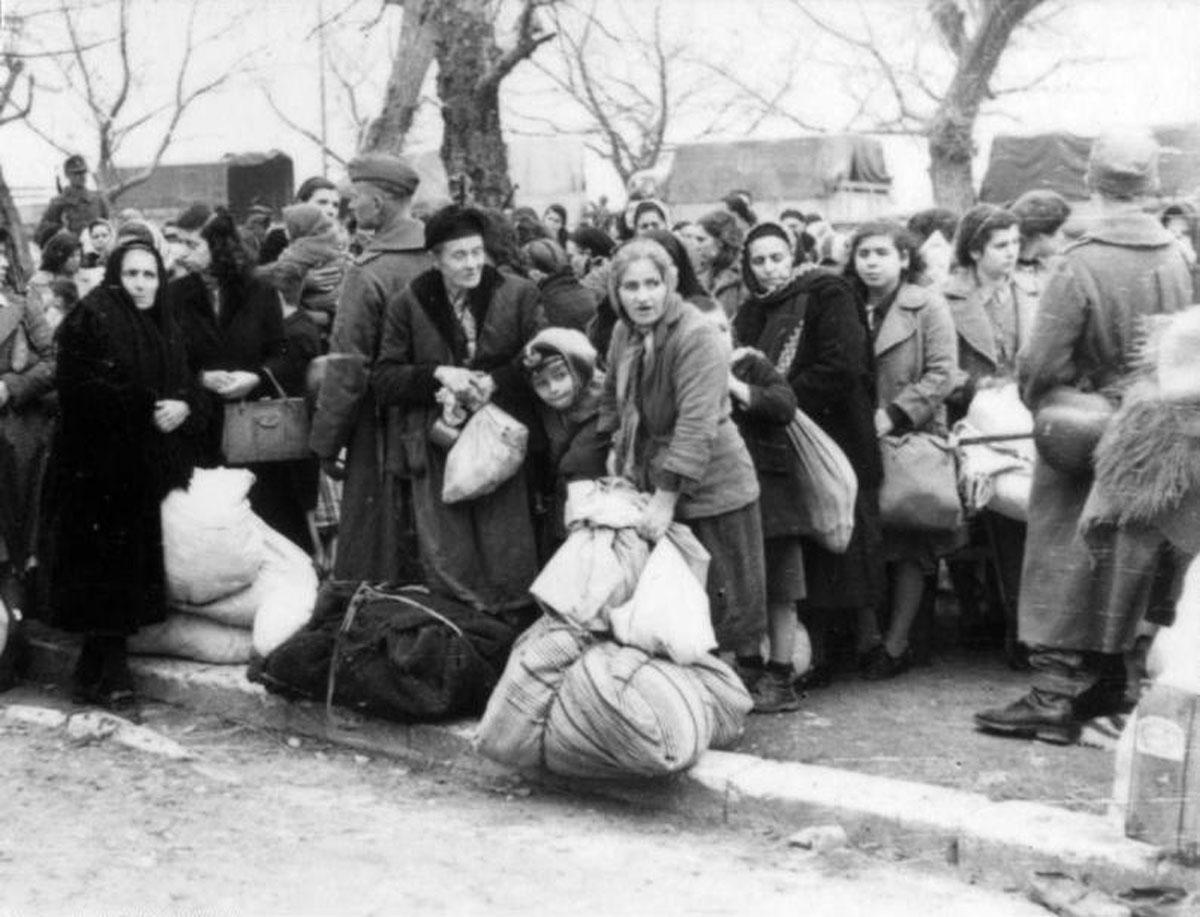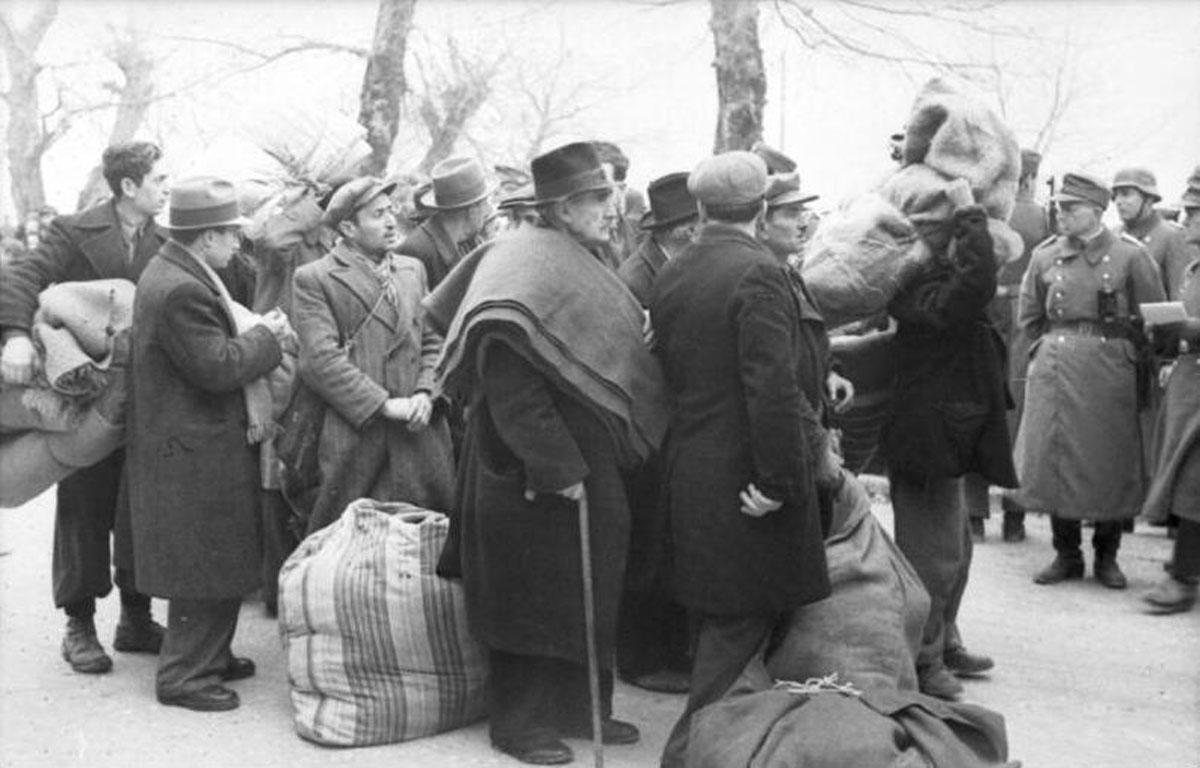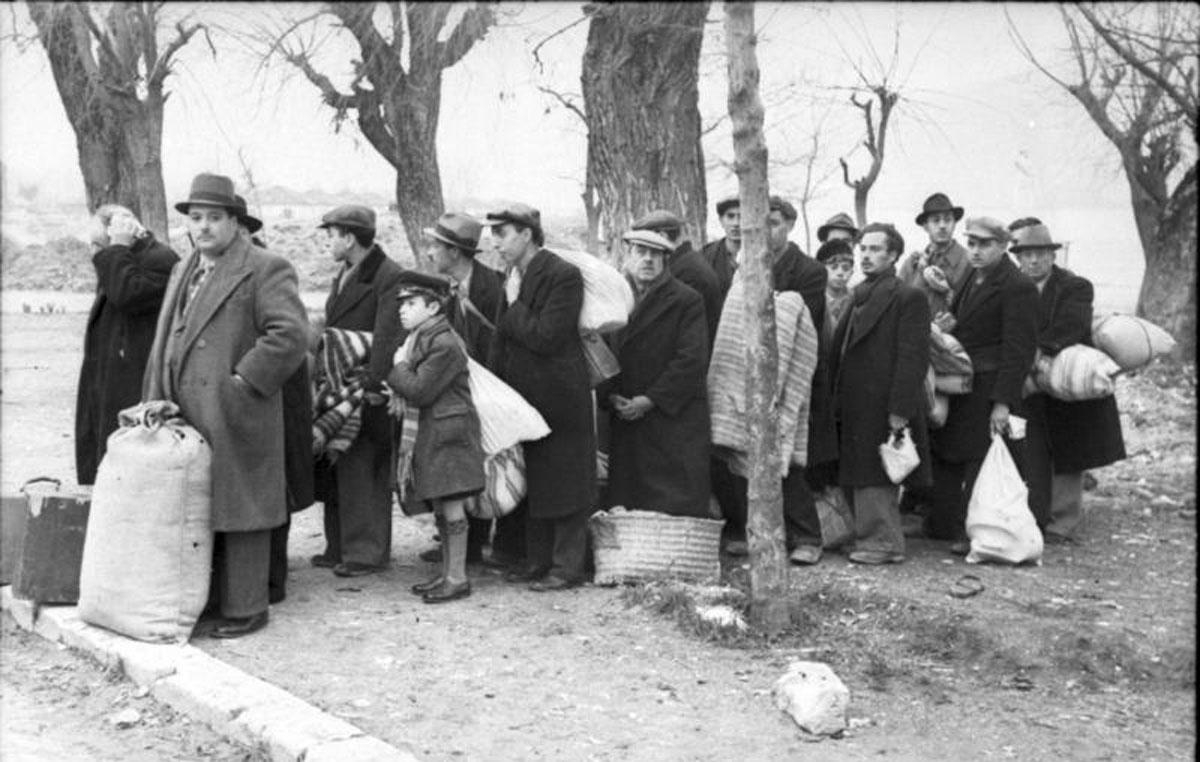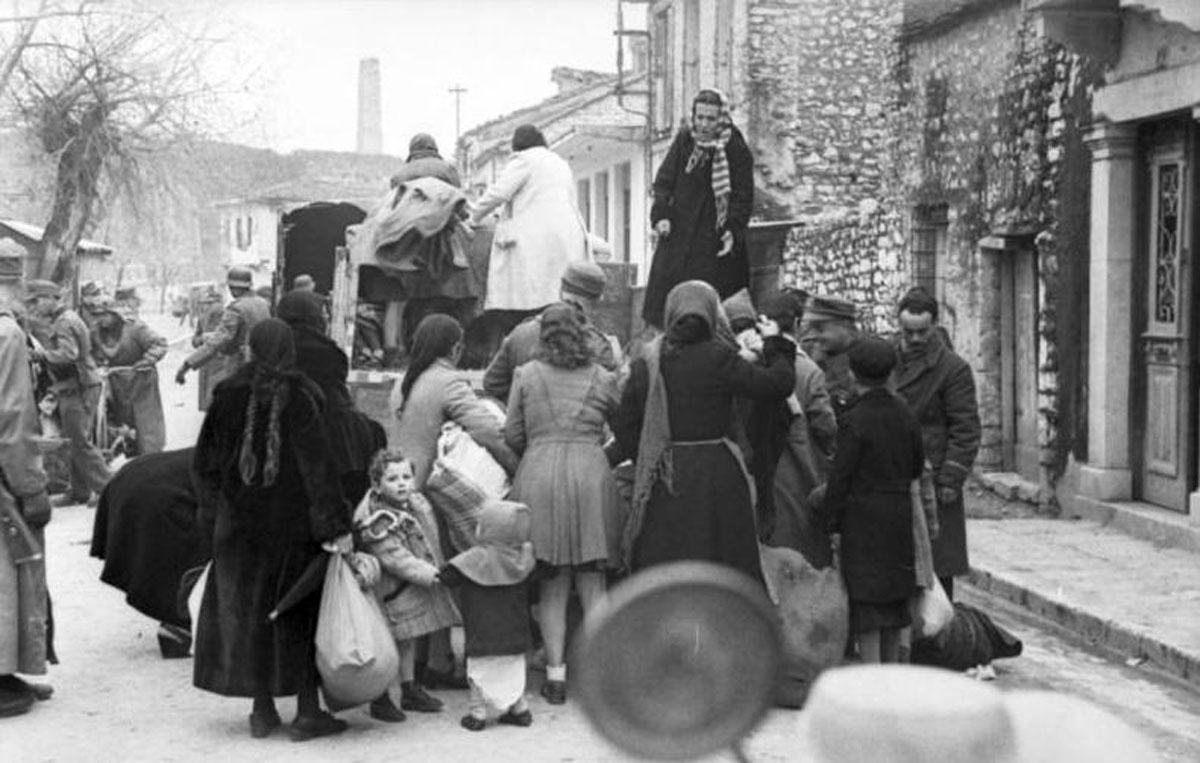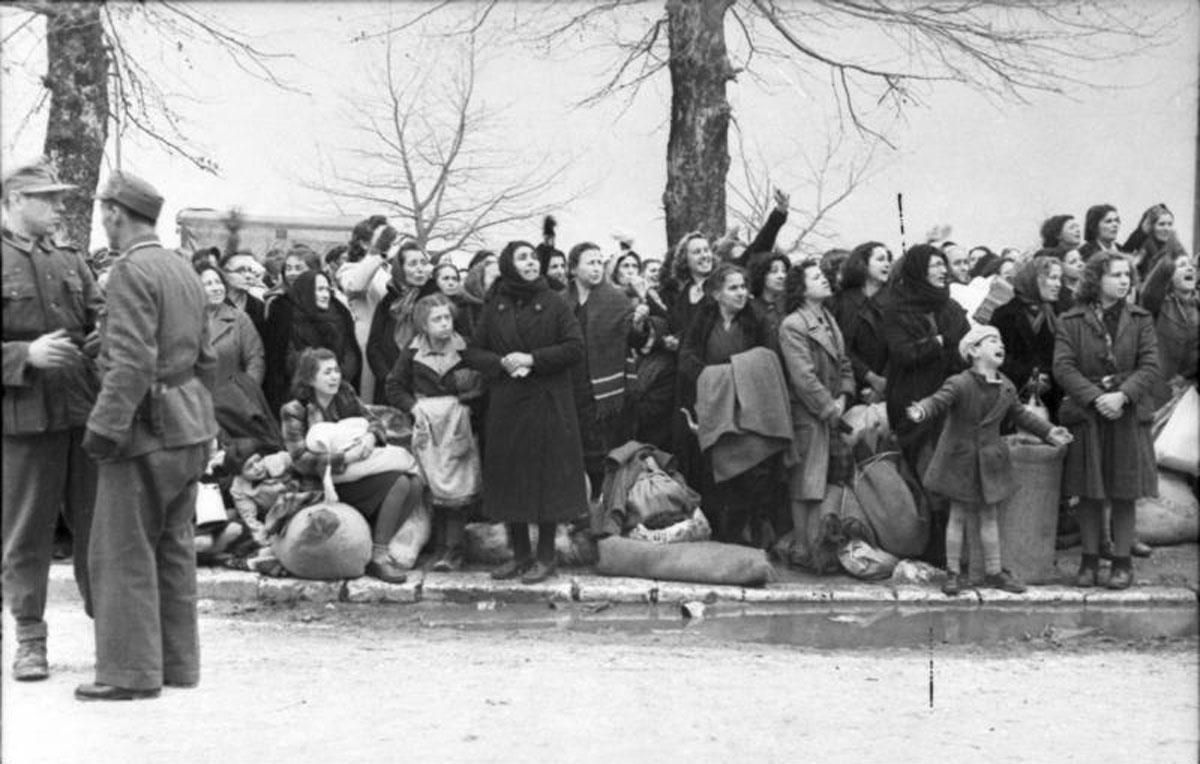At the beginning of March 1944, a census was held in the city, after which the Germans imprisoned four of the leaders of the Jewish community. The arrested leaders managed to smuggle a letter out of prison calling for the Jews to flee the city, but the deputy head of the community, Shabetai Kabeli, claimed that the Germans would not harm the Jews as long as the Jews provided them with money and supplies. Kabeli went to parents whose sons had fled the city to join the underground and convinced them to persuade their sons to return, claiming they were in fact collaborating with the Communist underground, thereby endangering the entire community. Only a very few Jews fled into the mountains, among them the four members of the Matsa family. Others obtained false papers, with the help of Greeks such as Father Athanasius, and succeeded in joining the partisans or reaching Athens. Some Christian residents of Ioannina hid Jews in their homes. Some of the leaders of the Jewish community dug a tunnel under the old synagogue in the ancient Jewish quarter, in which they buried all the Torah scrolls, the ornamental curtains, and the ritual items.
On Friday night, 24 March, German units surrounded the Jewish quarter, marking Christian houses with a cross and forcing the Jews to stay in their homes. This operation was undertaken with the aid of the local Greek police. Jews living within the fortress area were gathered in the nearby military hospital, after which they were violently loaded onto military trucks. Jews living outside the fortress were concentrated in Mavilis Square across from the lake, where the Germans separated the men from the women and children. Some 1,870 Jews were loaded onto trucks and driven in crowded conditions to Trikala. They spent the night in the local Jewish cemetery, sleeping on blankets they had brought with them. The next day the convoy reached Larissa. Two elderly people died on the way.
The deportees from Ioannina were deposited in a military garage, where the Jews of Larissa and Trikala, who had been brought a day earlier, were already waiting. The Jews from Ioannina were held in this garage for about a week, and all their valuables were forcibly taken from them upon threat of death. A number of Jews succeeded in escaping by bribing the the drivers of the garbage trucks, or by jumping over the fence. Those who escaped joined the partisans and fought with them until the end of the war.
From Larissa, the Jews of Ioannina were deported by train to Poland. Their journey lasted eight to nine days. More Jews died en route. In Auschwitz a selection was conducted, and a small number of Jews were sent to work. Most of the Jews, including Kabeli, his wife and her sisters, were sent to the gas chambers and murdered.
The property of the Jews of Ioannina was confiscated by the German Army and distributed to local Greek residents, some of whom were collaborators with the Germans, as well as to the Greek authorities. Greek citizens were allowed to take over the houses and the stores of deported Jews. Units of the Greek underground later recovered some remains of Jewish property, which were returned to survivors after the war. After the war only the Kahal Kadosh Yashan synagogue remained useable. The Kahal Kadosh Hadash synagogue, which had been used as a stable during the occupation, was severely damaged.
91% of the Jews living in Ioannina on the eve of the Nazi occupation in 1943 were murdered in the extermination camps. Out of 2,000 Jews, only some 164 returned to the city after the war. Most of them left during the first decade of the postwar period, due to the difficult living conditions. Today, only a few dozen Jews still live in Ioannina.
